Buying or refinancing a home can be stressful when you don’t know the language. If your mortgage professional uses terms you’re unfamiliar with, you might hesitate to admit you don’t know what they’re talking about—and that can leave you feeling confused and unsure.
Wouldn’t it be nice if you felt confident and comfortable instead? We’ve created a cheat sheet of important mortgage terms so you know exactly what your mortgage broker is talking about when they discuss things like PMI, DTI, LTV, and APR. Brush up on your home loan vocabulary and learn the mortgage terms you need to know to get the best loan for your needs.
Amortization
Amortization means spreading loan payments over multiple periods. For most people shopping for a home loan in Charlotte, NC, those payments will be monthly. An amortization schedule shows you exactly how much you will pay each month for the entire length of the loan.
For instance, say you found the perfect bungalow in Fort Mill. If you take out a fixed-rate mortgage, your amortization schedule would show you each monthly payment for the whole 10, 15, or 30 years you have the loan. Not only that, but you could see how much of each payment would go to principal and how much to interest. Try for yourself using our Mortgage Calculator.
APR
APR stands for Annual Percentage Rate. It’s a percentage that shows you how much you’d pay (averaged) for interest each year.
Knowing the APR for a loan helps you to compare “apples to apples” when looking at home loans. That’s because APR also includes other costs of borrowing, such as charges and fees, in addition to just the interest rate on the loan.
ARM
An ARM is an Adjustable-Rate Mortgage. With an ARM loan, the interest rate doesn’t stay the same over the life of a loan, as it does with a fixed-rate mortgage. ARMs have rates that can change at set periods, such as every six months or every year.
With an ARM, the interest rate is usually pegged to an underlying rate and might have a cap, too, so it doesn’t change too much. While it may seem like an ARM would make it tough to plan a budget, many people love them since they often have low introductory rates. If you sell or refinance before the rate on an ARM goes up, you could come out ahead.
Conventional Loan
A conventional loan is simply a “typical” loan from a lender. It’s not a government-backed loan, such as an FHA loan.
DTI
DTI stands for debt-to-income, and it refers to your debt ratio: the amount of money you owe vs. the amount of money you earn.
For instance, suppose you make $5,000 per month, and have a car note of $600, student loan payments of $400, and personal loan payments of $500. Your debts would be $1,500 (600+400+500), so your debt-to-income would be 1500/5000, or 30%.
Down Payment
Your down payment is the amount of money you put down on a mortgage, financing the rest. A typical down payment is 20% of the home’s purchase price, but there are many ways to buy a home with putting down much less.
Equity
Think of equity as your ownership in the home. If you put down 20% when take out a home loan, you already own 20% of the home. By paying your mortgage payments in full every month, you build up your equity bit by bit until the loan is paid off. At that time, you’ll have 100% equity, or ownership.
When home values go up, as they often do, your equity can rise even faster. Say you buy a home in Davidson, NC, near Charlotte, for $400,000. A few years later, the home is worth $500,000—you have instantly gained $100,000 in equity. And that doesn’t include what you’ve paid toward the mortgage!
Escrow
Escrow is a special type of account that is used to hold money for a particular purpose. Many lenders use mortgage escrow accounts to provide you with convenient services.
For example, your lender might hold some of your mortgage payment for you in a special escrow account, and then pay your property taxes or homeowners insurance out of those funds.
FHA
An FHA loan is one backed by the Federal Housing Administration, a U.S. government program that helps more people become homeowners. When you qualify for an FHA loan, you become eligible for loans with low down payments, even if your credit score isn’t perfect. FHA loans are a great way for first-time home buyers to afford a home. You can get FHA loans through mortgage lenders.
Jumbo Loan
A jumbo loan is just what you think: a very, very large home loan. Jumbo loans are useful for people shopping for a mortgage that exceeds the general loan-servicing limit of $647,200.
HEL / HELOC
A Home Equity Loan or Home Equity Line of Credit lets you borrow against the equity in your home. Many homeowners use HEL / HELOCs to pay for renovations, remodels, higher education, or other expenses. HEL / HELOCs are useful for people who already own a home but are looking for more cash flow.
HUD
HUD is short for the U.S. Department of Housing and Urban Development. FHA loans come through the HUD, as well as special home buying programs like the Good Neighbor Next Door.
LTV
LTV stands for Loan-To-Value. It’s a way of understanding how much you’re borrowing as compared to the price of the home. For example, suppose you’re considering a $300,000 bungalow in Rock Hill, with a $250,000 mortgage. The LTV ratio would be 83%.
PITI
PITI is short for Principal, Interest, Taxes, Insurance. These are the four main components of your mortgage payment. It’s important to remember that your monthly mortgage is more than just the amount you borrowed—it’s the interest costs, too, plus your property taxes and homeowners insurance.
PMI
PMI stands for Private Mortgage Insurance. It’s common for a lender to require you to pay PMI if you have a conventional home loan. For instance, say you’re considering a conventional, fixed-rate mortgage with 5% down, instead of the customary 20%. Your lender asks for mortgage insurance, in the form of PMI, to protect against you defaulting on your home loan. You’ll pay PMI as a portion of your monthly mortgage payment, in addition to the principal and interest.
Many times, you can get rid of PMI once you have 20% equity in your home.
Points
Mortgage points are a way to pay a little upfront in order to bring your interest rate down.
Some people choose to pay points so that they can get a low interest rate over the life of the loan. Other people prefer to skip paying points, choosing instead to pay a slightly higher interest rate, but with payments spread out over time.
USDA
The USDA is the United States Department of Agriculture. USDA loans give people in rural areas an affordable way to buy a home— with nothing down and great interest rates, even for not-great credit. If you qualify for a USDA loan, you might be able to save over conventional and even FHA loans.
VA
VA loans are offered through the U.S. Department of Veterans Affairs, and they give vets a way to buy affordable homes. VA home loans don’t require private mortgage insurance. They also provide competitive rates and limited closing costs for those who qualify.






